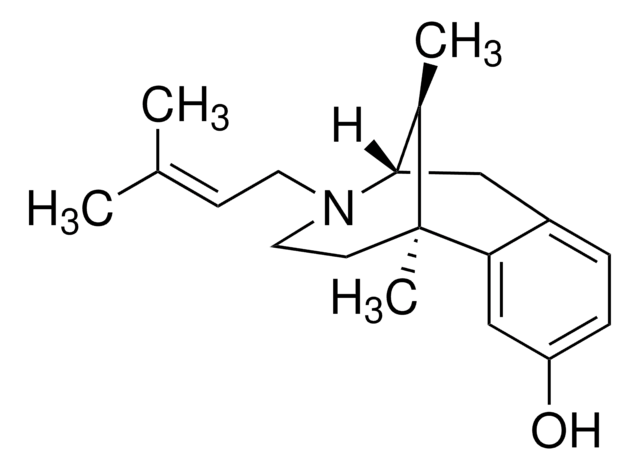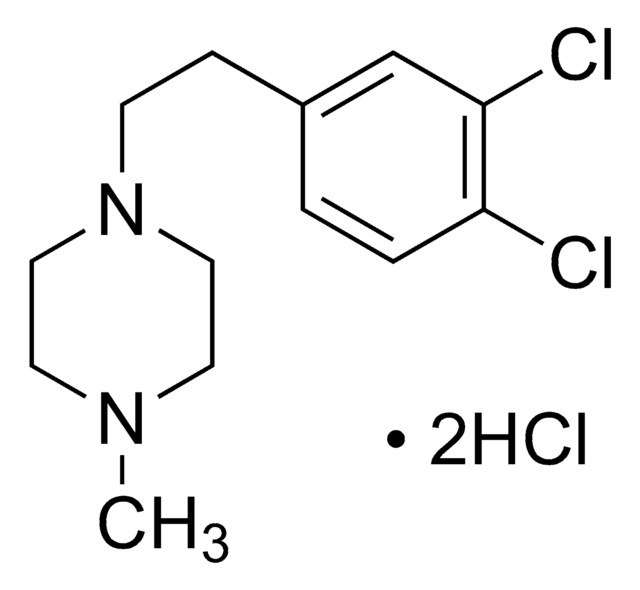P134
(−)-Pentazocine
≥98% (HPLC)
About This Item
Productos recomendados
Quality Level
assay
≥98% (HPLC)
form
solid
drug control
USDEA Schedule IV; Home Office Schedule 3; stupéfiant (France); kontrollierte Droge in Deutschland; regulated under CDSA - not available from Sigma-Aldrich Canada; psicótropo (Spain); Decreto Lei 15/93: Tabela IIC (Portugal)
storage condition
protect from light
color
white
solubility
DMSO: >10 mg/mL
originator
Sanofi Aventis
storage temp.
room temp
SMILES string
C[C@@H]1[C@@H]2Cc3ccc(O)cc3[C@@]1(C)CCN2C\C=C(\C)C
InChI
1S/C19H27NO/c1-13(2)7-9-20-10-8-19(4)14(3)18(20)11-15-5-6-16(21)12-17(15)19/h5-7,12,14,18,21H,8-11H2,1-4H3/t14-,18+,19+/m1/s1
InChI key
VOKSWYLNZZRQPF-CCKFTAQKSA-N
Biochem/physiol Actions
Features and Benefits
signalword
Warning
hcodes
Hazard Classifications
Acute Tox. 4 Oral
Storage Class
11 - Combustible Solids
wgk_germany
WGK 3
flash_point_f
Not applicable
flash_point_c
Not applicable
ppe
dust mask type N95 (US), Eyeshields, Gloves
Certificados de análisis (COA)
Busque Certificados de análisis (COA) introduciendo el número de lote del producto. Los números de lote se encuentran en la etiqueta del producto después de las palabras «Lot» o «Batch»
¿Ya tiene este producto?
Encuentre la documentación para los productos que ha comprado recientemente en la Biblioteca de documentos.
Nuestro equipo de científicos tiene experiencia en todas las áreas de investigación: Ciencias de la vida, Ciencia de los materiales, Síntesis química, Cromatografía, Analítica y muchas otras.
Póngase en contacto con el Servicio técnico









